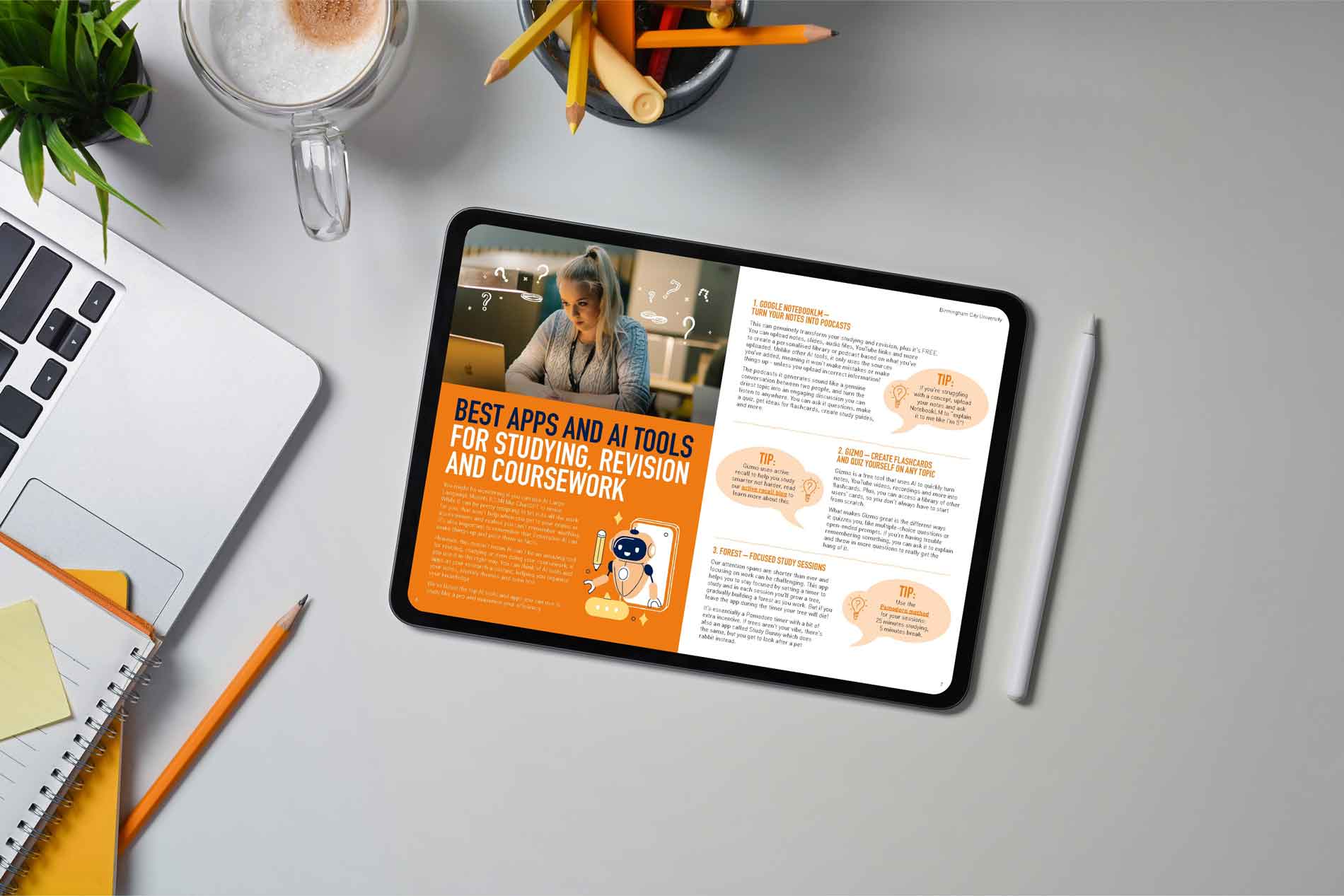Exam season can feel like navigating uncharted waters - challenging for students and equally intense for parents and carers who want to provide the right support. Understandably, you want the best for your child and to see them succeed, but many young people can find this pressure overwhelming and become exhausted. While you may expect your child to study for many hours, it's been shown that balancing hard work and rest can have a positive effect.
Here are five practical tips to help you support your child’s health, focus, and confidence during revision and exams.
Struggling to help your child with revision?
Get your FREE guide packed with expert study tips, a step-by-step timetable planner, essential AI learning tools, and more to smash your exams.
1. Spot signs of stress early on
Some young people find it difficult to express when they’re struggling with their workload. Instead, they might show their stress in other ways. Being aware of these signs can help you step in with support before things become too overwhelming.
Look out for:
- Changes in mood: Are they more withdrawn, irritable, or worried?
- Sleep difficulties: Are they staying up too late to study or struggling to wake up?
- Physical signs: Complaints of headaches, stomach aches, or feeling sick.
- Changes in eating habits: Eating too much or too little compared to usual.
If you notice these signs, try to start a conversation in a way that doesn’t feel like pressure. A simple “Tell me what’s on your mind” can help them open up. If they don’t feel like talking, you could ask , “What can I do to help?” Sometimes just knowing you’re there is enough.
2. Balance studying with rest
Many parents expect children to study for long hours, but studying for shorter, focused periods with breaks in between can actually be more effective. Encouraging balance will help them stay motivated and retain information better.
One simple method is the Pomodoro technique – 25 minutes of focused study followed by a 5-minute break. For students who struggle with self-discipline, a reward-based approach might work better, like an hour of study followed by 30 minutes of relaxation.
Encourage active breaks to help reset their mind:
- Taking a short walk outside
- Stretching or light exercise
- Listening to calming music, praying or deep breathing
- Watching an episode of their favourite programme or a video on YouTube
3. Support healthy eating for focus and energy
During revision, students often reach for quick, convenient foods, but nutrition plays a big role in focus, memory, and energy levels. When preparing meals and snacks, try to include some of these key nutrients:
- Iron and B vitamins: Important for energy and brain function. These can be found in foods like lentils, leafy greens, eggs, and fish.
- Protein and healthy fats: Help with concentration and sustained energy. Nuts, seeds, beans, soy and dairy products are good sources.
- Slow-release carbohydrates: Provide steady energy and help avoid sugar crashes. This includes whole grains, rice, and starchy vegetables.
- Hydration: Encourage drinking plenty of water, milk-based drinks, or unsweetened teas instead of energy drinks or excessive caffeine.
A simple way to help your child eat better is to have nutritious snacks prepared so they don’t always reach for junk food.
4. Prioritise good sleep
Some students naturally prefer studying late at night, while others work better in the morning. Rather than focusing on strict bedtimes, try to encourage a routine that allows them to get enough quality sleep.
Encourage them to:
- Keep a consistent wake-up and sleep time.
- Limit screen time before bed (unless they’re using their phone for something relaxing like listening to recitations, audiobooks, or meditation)
- Unwind before bed with quiet activities like reading, prayer, or stretching
Did you know? Your brain processes information while you sleep, helping to convert revision into memory. Getting enough sleep isn’t just about rest – it actively improves learning.
5. Encourage them without adding pressure
You might be worrying about your child's grades and exams because they could influence their future opportunities or career. Exam stress can feel overwhelming, but remember: your support is crucial right now. Encourage your child to work hard and believe in their potential, while helping them understand that their value as a person goes far beyond any exam result. While academic success is important, self-confidence and resilience are just as valuable.
- Encourage effort over perfection: Instead of saying, "You need to get top marks," try ", I'm proud of how hard you're working."
- Keep options open: If a traditional career like Medicine isn't the right path, consider alternatives like degree apprenticeships, Clearing or vocational degrees in high demand industries like Engineering or Nursing.
- Reassure them: If they feel overwhelmed, let them know that feeling pressure is normal, and they are not alone.
While many parents prioritise traditional career paths, there are multiple ways to succeed. The most important thing is helping your child develop the skills and confidence to pursue their future with determination and balance. This report on the future of work shows some of the industries which will be in demand, which could provide opportunities or conversation starters for your young person. If you're concerned about their future career and what they could do, here are a few online resources that might be helpful:
Final thoughts
Supporting your child through exam season is about more than academic results; it's about nurturing their confidence, resilience, and love of learning. While you may want them to succeed academically so they can have many opportunities in life, there are many more pathways open to them. By encouraging healthy habits, balanced revision and emotional support, you can help them be successful in whatever they choose. Learn more about the different routes your young person could take post-16 here.






